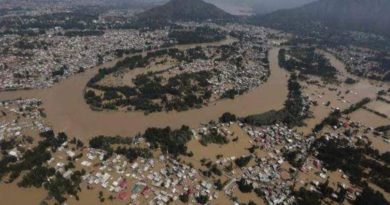Climate change could reduce soil’s capacity to absorb water
Changing patterns of rainfall due to climate change could reduce the ability of soil to absorb water in many parts of the world, shows a new study. This can have serious implications on groundwater supplies, food production, storm-water runoff as well as biodiversity and ecosystems. Climate change is expected to bring increased rainfall to certain regions of the world, which, along with other environmental changes, could lead to less infiltration of water into the soil, the researchers say. They say that the impact on soils from climate change could have significant implications for groundwater supplies, food production, the behavior of water run-off from storms, and the functioning of ecosystems.
The research was conducted over a period of 25 years in Kansas and involved irrigation of prairie soil, associated with temperate grasslands with sprinklers. Scientists found that a 35% increase in rainfall led to a 21-33% reduction in water infiltration rates in soil and only a small increase in water retention.
The biggest changes were linked to shifts in large pores in the soil. Large pores capture water that plants and micro-organisms can use, and that contributes to enhanced biological activity and nutrient cycling in soil and decreases soil losses through erosion.
Researchers highlighted that the next step is to investigate the mechanisms driving the observed changes in order to extrapolate the findings to other regions of the world and incorporate them into predictions of how ecosystems will respond to climate change.




